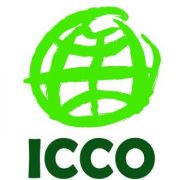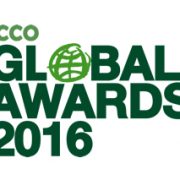ICCO is proud to announce the judges for the ICCO Global Awards 2016; the global showcase for the most effective PR from the world’s most talented practitioners.
The awards are the only internationally recognised awards programme purely based on effectiveness, measurement, results and impact for the global PR industry, and supported by PR trade associations representing 48 countries worldwide.
Entries are judged by an elite international panel of top PR practitioners who will consider excellence and effectiveness of PR work submitted from across the world.
David Gallagher, co-President of the jury said: “Much of the discussion in PR about earned, paid or owned media, or the changing nature of social media, or the importance of creative storytelling, or any of the other myriad topics we discuss, are largely academic. The thing that matters: results. What happened as a result of our activity in terms of behaviour, attitude or ideas? That’s what the ICCO awards emphasize – and that’s what makes them unique.”
ICCO Global Awards International Jury:
Co-President: Renee Wilson, President, PR Council (USA)
Co-President: David Gallagher, President, Growth and Development, International, Omnicom Public Relations Group (Global)
Poli Stuart-Lacey, Head of Communications, UK Government (UK)
Michael Schröder, Global President, IPREX (Global)
Michael Frohlich, CEO, EMEA, Ogilvy Public Relations (EMEA)
Victoria Wagner, CEO, Ketchum Germany (Germany)
Denise Kaufmann, CEO, Ketchum London (UK)
Lucio Bergamaschi, Director General, Below Communications and Media Relations (Italy)
Jean-Leopold Schuybroek, Chairman, Interel Belgium (Belgium)
Andrey Barannikov, CEO, SPN Communications (Russia)
John Ehiguese, Founder & CEO, Mediacraft Associates (Nigeria)
Dimitris Roulias, CEO, Out of the Box PR (Greece)
Sharon Murphy, Deputy CEO, Wilson Hartnell (Ireland)
Jürgen Gangoly, Managing Partner, The Skills Group (Austria)
Emine Cubukcu, Managing Director, Ogilvy Public Relations Istanbul (Turkey)
Kresten Schultz Jorgensen, Managing Partner, LEAD Agency (Denmark)
Bridget von Holdt, Executive Director, Glasshouse Communication Management (South Africa)
Grzegorz Szczepanski, CEO, Hill+Knowlton Strategies Poland (Poland)
Andras Sztaniszlav, Senior Consultant & Communications Strategist, PersonaR (Hungary)
Jelena Sarenac, Director of Corporate Communications, Henkel (Serbia)
Michaela Benedigova, Director and Partner, SEESAME Communication Experts, (Slovakia)
Katya Dimitrova, Managing Partner, Interpartners (Bulgaria)
Stian Lyberg, Consultant & Founder Partner, PR-operatørene (Norway)
Marina Haluzan, Information and PR Adviser, Croatia Control (Croatia)
Tatevik Pirumyan, Founder, Managing Director, Communication Management Group (Armenia)
Sari-Liia Tonttila, Managing Director, Ahjo Communications (Finland)
Gary Muddyman, Managing Director and CEO, Conversis (UK)
Aaron Kwittken, CEO, Kwittken Communications (USA)
Sconaid McGeachin, President & CEO, Africa, Middle East & Turkey, Hill+Knowlton Strategies (MENA)
Tanya Hughes, President, SERMO Communications (Global)
Isabelle Wolf, CEO & Founder, Kingcom (France)
Loretta Ahmed, CEO Middle East, Turkey & Africa, Grayling (MENA)
Barry Leggetter, CEO, AMEC (Global)
George McGregor, Managing Partner, Interel UK (UK)
Aye Verckens, Managing Director, Recognition PR (Australia)
Rakesh Thukral, Managing Director, Edelman India (India)
KEY DATES:
Final entry deadline: 02 November 2016
Shortlist Announced: 17 November 2016
Awards Night (St. Pancras Renaissance Hotel, London): 01 December 2016
For more information on entries the awards or attending the awards night, visit awards.iccopr.com.








